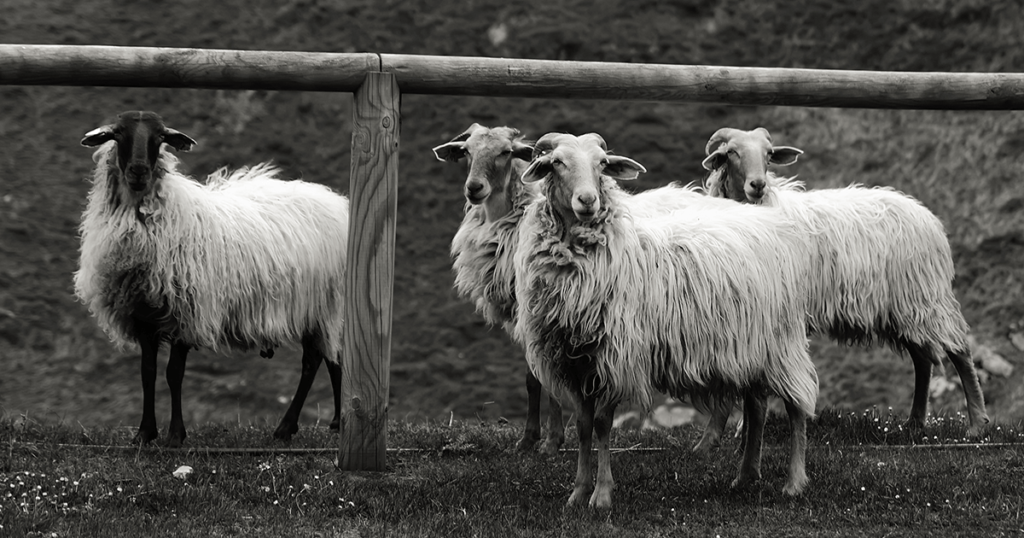
In Spanish, a fleece that you wear is a forro polar, unless you’re a sheep and the fleece in question is being taken from your back, in which case the term is vellón. Shearing in this area of Asturias starts in May, a month of uncertain weather, and in the fields many shorn sheep huddle through chilly spring rains. I saw some of these lost-looking animals the last Sunday in May, a damp day following a very wet one. Should a human being find himself similarly exposed to intemperate weather, he might have to put up with a word of advice on top of the cold. Hasta el cuarenta de mayo no te quites el sayo is a refrain meaning don’t put aside your coat until the 40th of May, which is June 9th. More generally, don’t count on something until it’s a sure bet. Don’t be overconfident, is another way to put it. Don’t be too trusting.
But who trusts the weather? In Montana, where I lived for a while, people were fond of saying that if you didn’t like the weather, wait 15 minutes and it would change. I first heard that after driving through a snowstorm in August. We weren’t even very high up, as I recall, nor was it particularly cold, though it became so for a bit. Then the sun reappeared.
Montana was strange too because there were no speed limits when I lived there and, stranger yet, no open-container law for cars. When you left a bar, if you hadn’t finished your beer, you could take it with you in a plastic cup if you asked for one. Same with a mixed drink. That was an eye-opener.
An open container of alcohol in the car is perfectly legal in Spain as well. In fact, passengers can drink all they want, and the driver can provided that the car’s parked and the drink doesn’t put him over the legal limit. Once the vehicle is moving, the driver can’t drink—not beer, not water, not anything. But it’s the drinking in restaurants and bars that’s the real problem, and the green-clad Guardia Civil stopping cars to perform breathalyzer tests is a common sight about five o’clock on a weekend afternoon when sated diners, out with friends or family, finally move on, one or two of the party undoubtedly having rounded off the meal with a liquor, such as orujo, also called aguardiente, a standard choice here in the north.
Once, after a Saturday trek in the mountains ending at the doors of a tavern, the excursionists in my group were laughing and talking loudly at one of the long tables against a wall where large groups end up. It was May then too, and we had hiked through some ominous weather and passed some cowering sheep. “Poor things,” I’d said, as much out of habit as from true concern. I knew that late cold, like early snow, doesn’t last.
But you do feel sorry for these skinny-legged ruminants, nearly naked, prey to downpours, buffeting winds, and the loud guffaws of people who will say to one another about a trembling creature, “I’ll build a fire to warm her! She can get as close as she wants!” I’ve heard men in much the same tone joke about how they’d comfort a woman facing some threat. Whether at a sheep’s distress or a woman’s, the laughter I’ve heard is not malicious. It’s ordinary people recognizing that another’s weakness will be used to advantage; usually the appetite behind the comment is simply for a laugh. Still, just in case, watch your back, and keep your coat.

